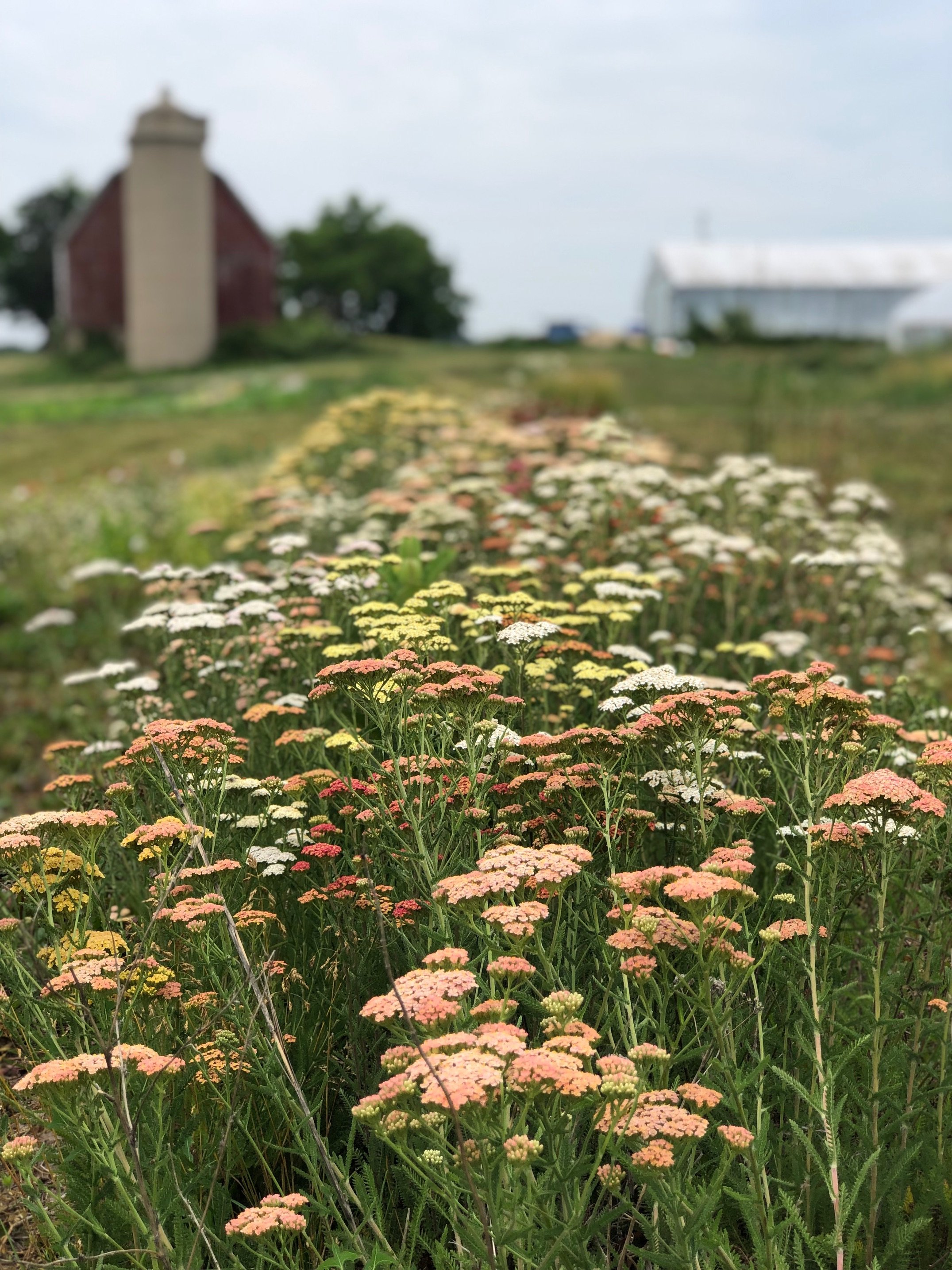
Fernabelle Acres:
Growing Beauty, Sustainably
In late 2020, we embarked on a big adventure: transforming a 36-acre cornfield in Racine County into a thriving floral paradise. We're busy adding infrastructure, planting perennials, and dreaming big about the future of Fernabelle Acres.
Our mission? To provide a reliable wholesale source for local florists. We know that sourcing locally grown flowers can be a challenge, especially when it comes to quantity and logistics, particularly in this part of the world. We're building a farm that prioritizes quality and sustainability—for the planet and for the people who grow and work with these beautiful blooms.
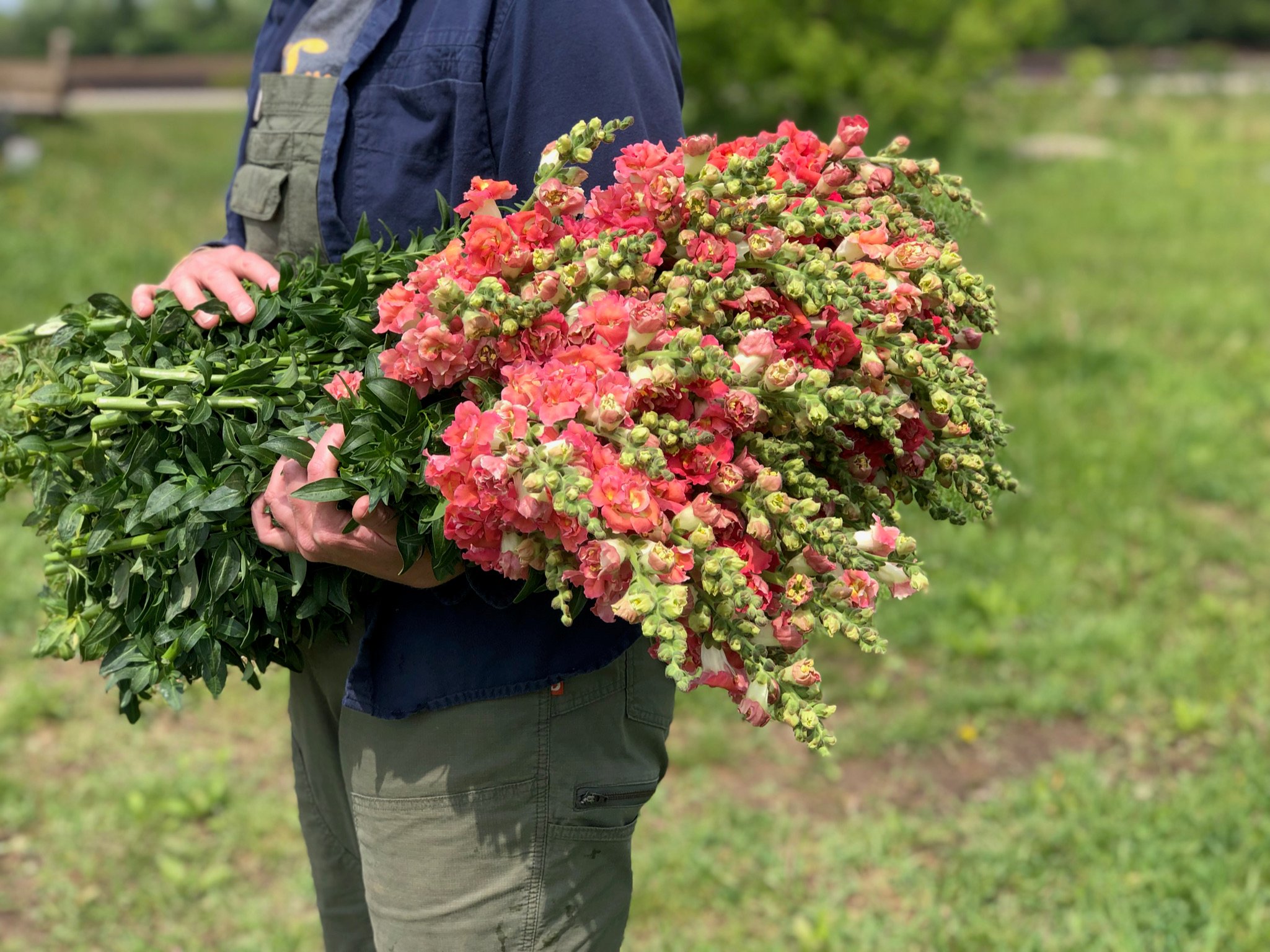
Our first growing season was in 2021 and we haven’t looked back. What was once a typical cornfield is now being reborn as a floral haven. It's a multi-year project to revitalize the land, and we're committed to doing it right. We're implementing plans for cover cropping, field rotation, and erosion control to ensure a healthy and thriving ecosystem. We started growing with five acres that first year and, while it's taken a little longer than we anticipated, the final phase (for now!) of our field expansion is underway. By 2026, we plan to be managing 20 acres while leasing the remaining land to a local farmer.
The first few years have been all about infrastructure: a giant well, irrigation systems, unheated greenhouses, walk-in coolers, barn renovations, tractors, and all the necessary equipment.
As my grandpa wisely told me, "If you want to make a million dollars in farming, you'd better start with two million!" He might have been onto something.
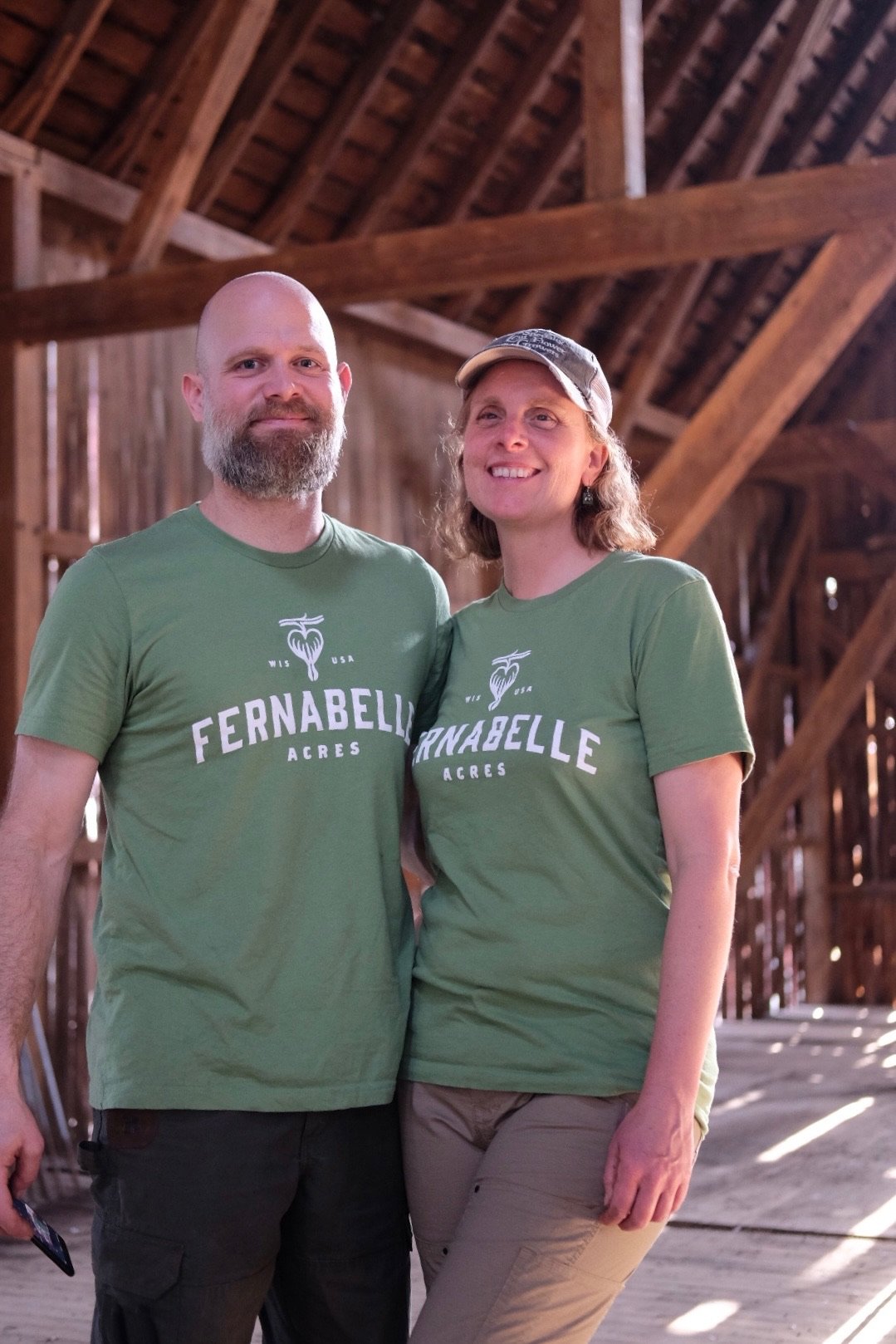
I’m Emily Watson (and that’s my incredibly supportive husband, Nich). I dreamt up this whole plan out of a deep desire to bring a wider variety of locally grown flowers to Milwaukee-area designers. I'm uniquely positioned to understand what's possible here.
- I've been growing cut flowers on a smaller scale since 2008, so I know what thrives in this area (and what doesn't).
- As a former floral designer, I understand the trends, quality demands, and quantities required in modern floristry.
- And with a degree in biological conservation, I'm passionate about environmental sustainability and responsible land use.
These values are at the heart of Fernabelle Acres, and they inform every decision we make, from the way we manage our land to the flowers we grow.
Our Growing Philosophy: It's All About the Flowers (and the Planet!)
We are planting a lot of trees, shrubs, and perennials. Not only to offer a more unique selection to you all, but also to increase the biodiversity on this piece of land. We know that variety is the spice of life. Literally! More biodiversity means healthier ecosystems, which means healthier plants, which means better flowers. Who doesn’t want that?!
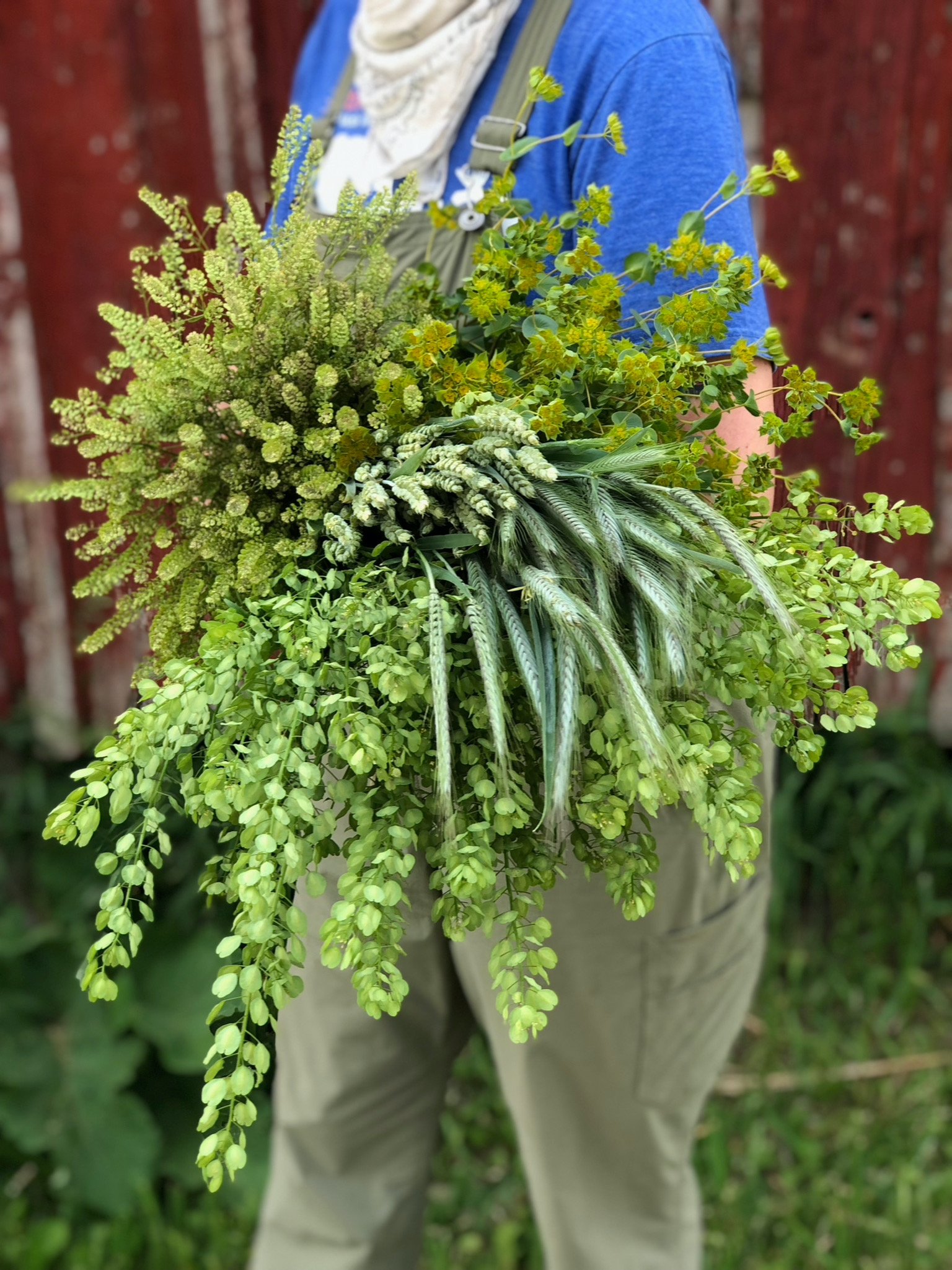
Kicking Single-Use Plastics to the Curb
This one is huge. There is a lot of single-use plastic that gets used in farming and floristry. We do our best to find other alternatives or reuse things until they are no longer useful. This means that we aren't going to wrap anything in plastic and we are going to ask for our buckets back. It also means more labor hours in weeding and a higher initial expense on things like trellising and irrigation supplies. We think that we're all going to get paid back in the long run on that one.
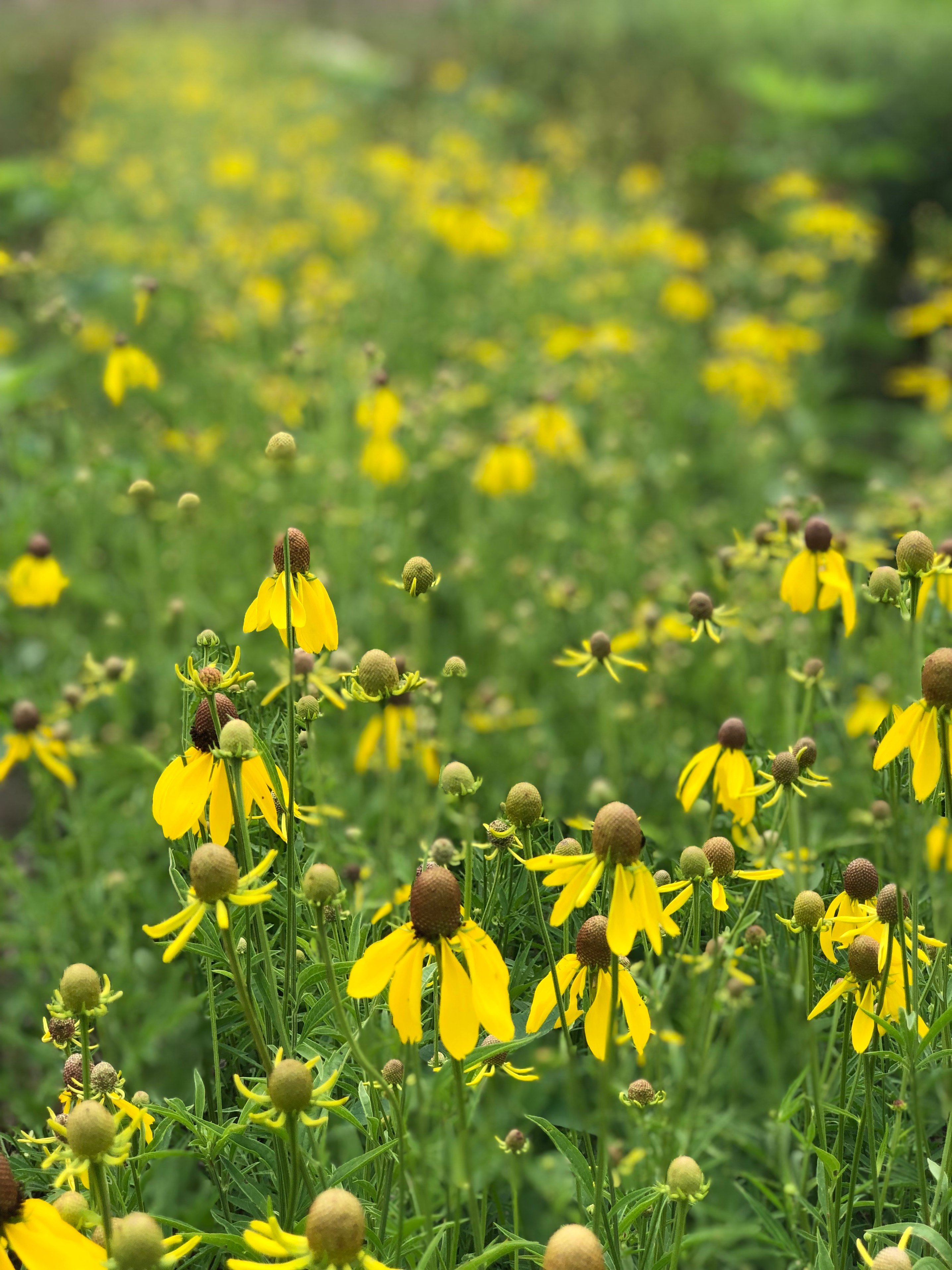
Bringing Life Back to the Land
Our farm was a giant corn field when we bought it. We are adding habitat plantings and tree lines. Native flowers, grasses, trees, and shrubs provide food and shelter for pollinators and other wildlife. The biodiversity in our soil is also super important for healthy plants. We utilize cover crops and other more natural fertilizers. And we only till when and where it is needed.
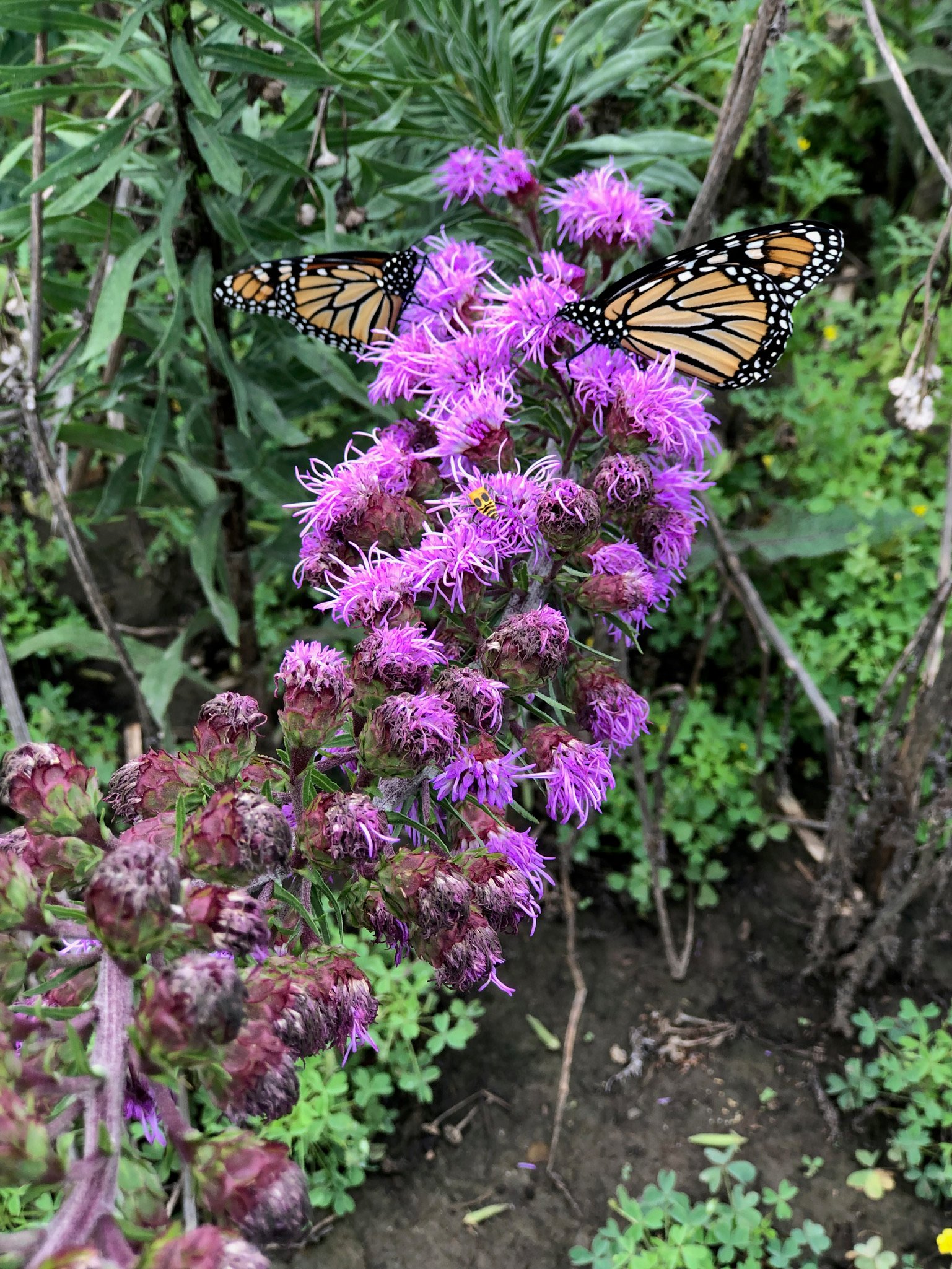
Pest Management: The Smart Way
Integrated pest management is a softer approach to managing pests and disease. We use a lot of beneficial organisms and organic controls when needed. We also have a built-in level of tolerance for weeds and pests. Perfection is not the goal. A good product and a healthy environment for us to work in are the top priorities. A balanced ecosystem actually helps to cut down on unwanted pests and disease.
Healthier soil and water management practices produce better flowers. It's all connected. As we address the biodiversity on the farm, we will see a decrease in pest pressure and an increase in flower productivity. Win, win!
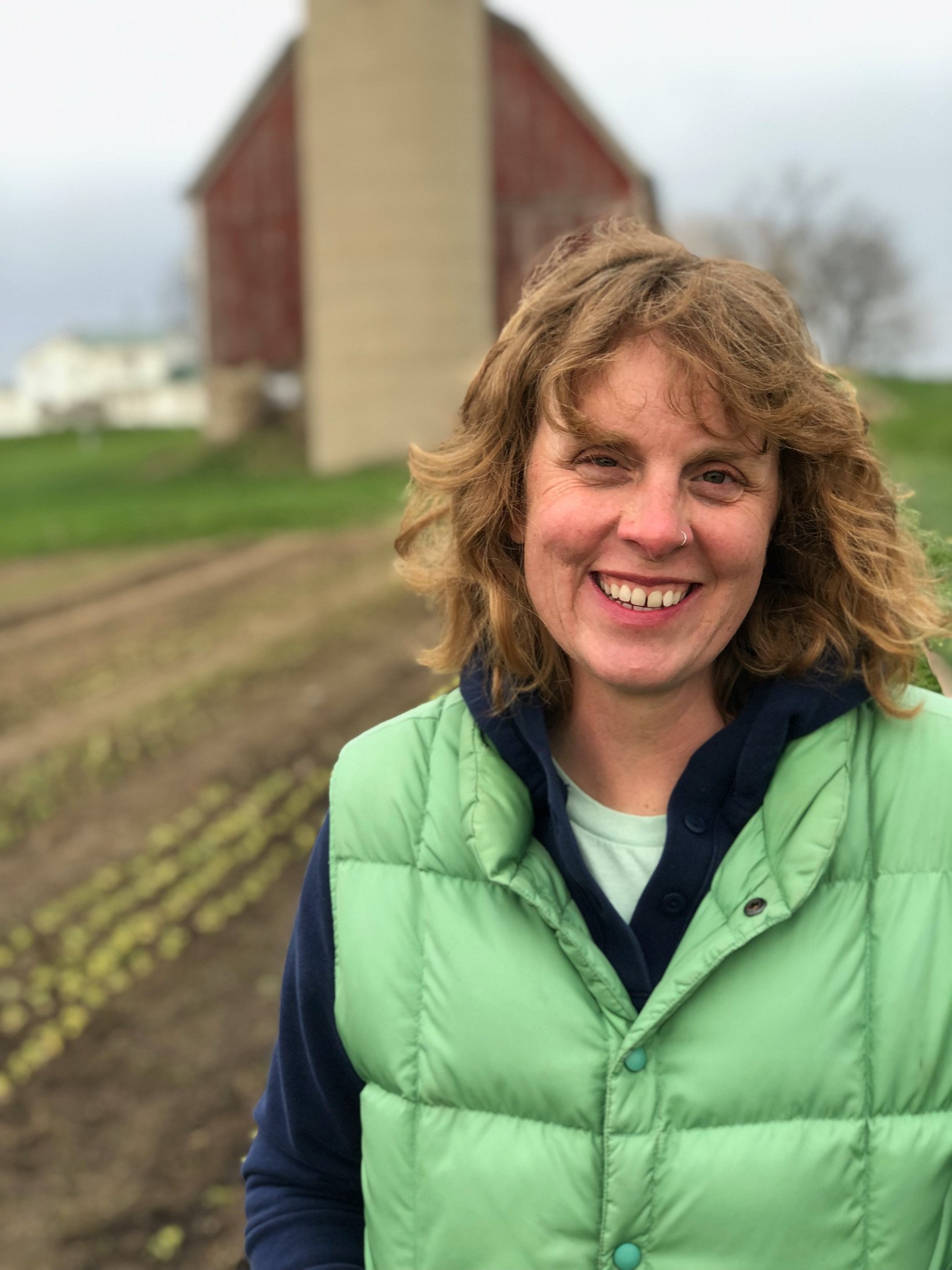
Stay in the loop!
We send out a newsletter every month with flowery pictures, seasonal updates, and info on farm events (someday!). You don't need to rely on social media to stay connected!
Thank you for subscribing!
Have a great day!